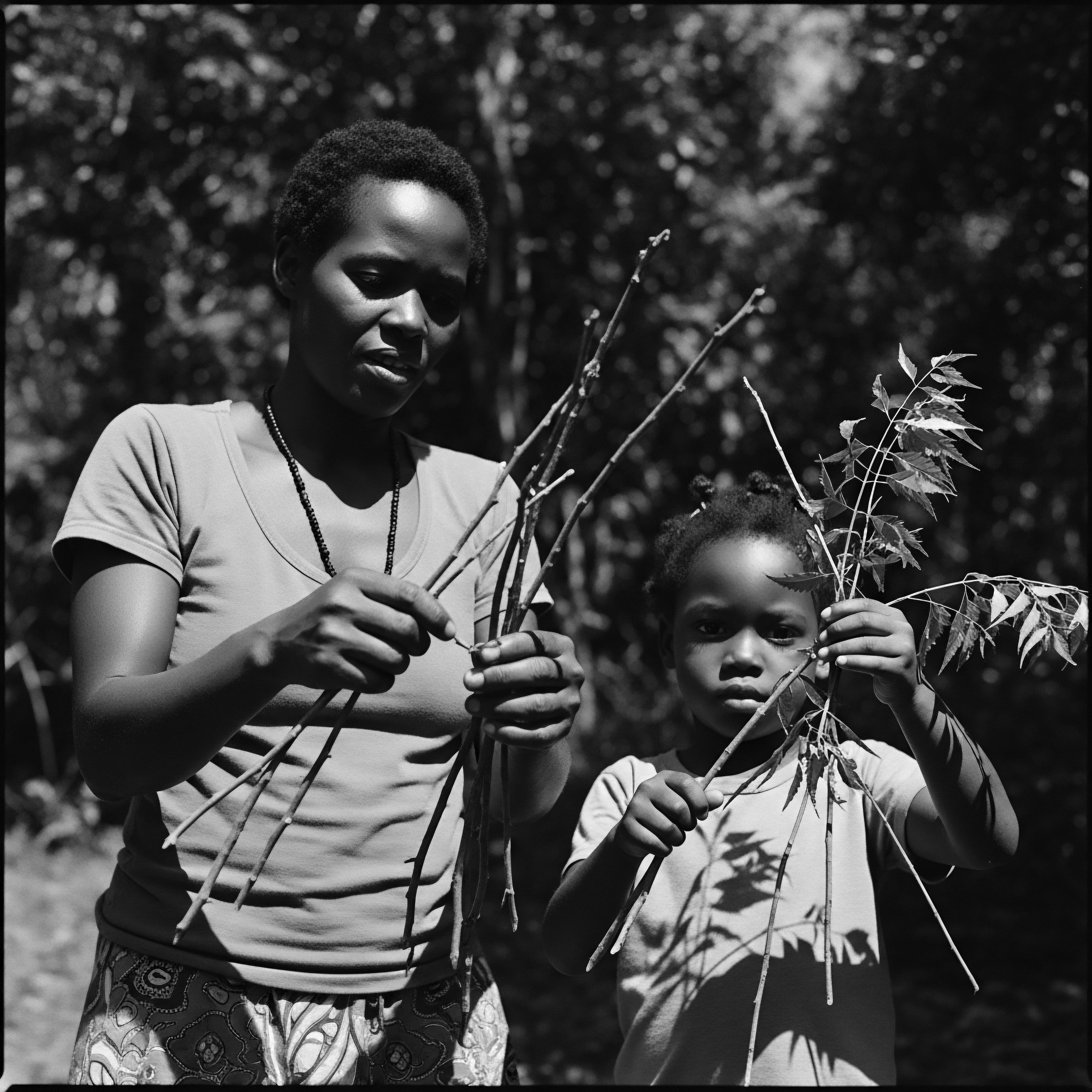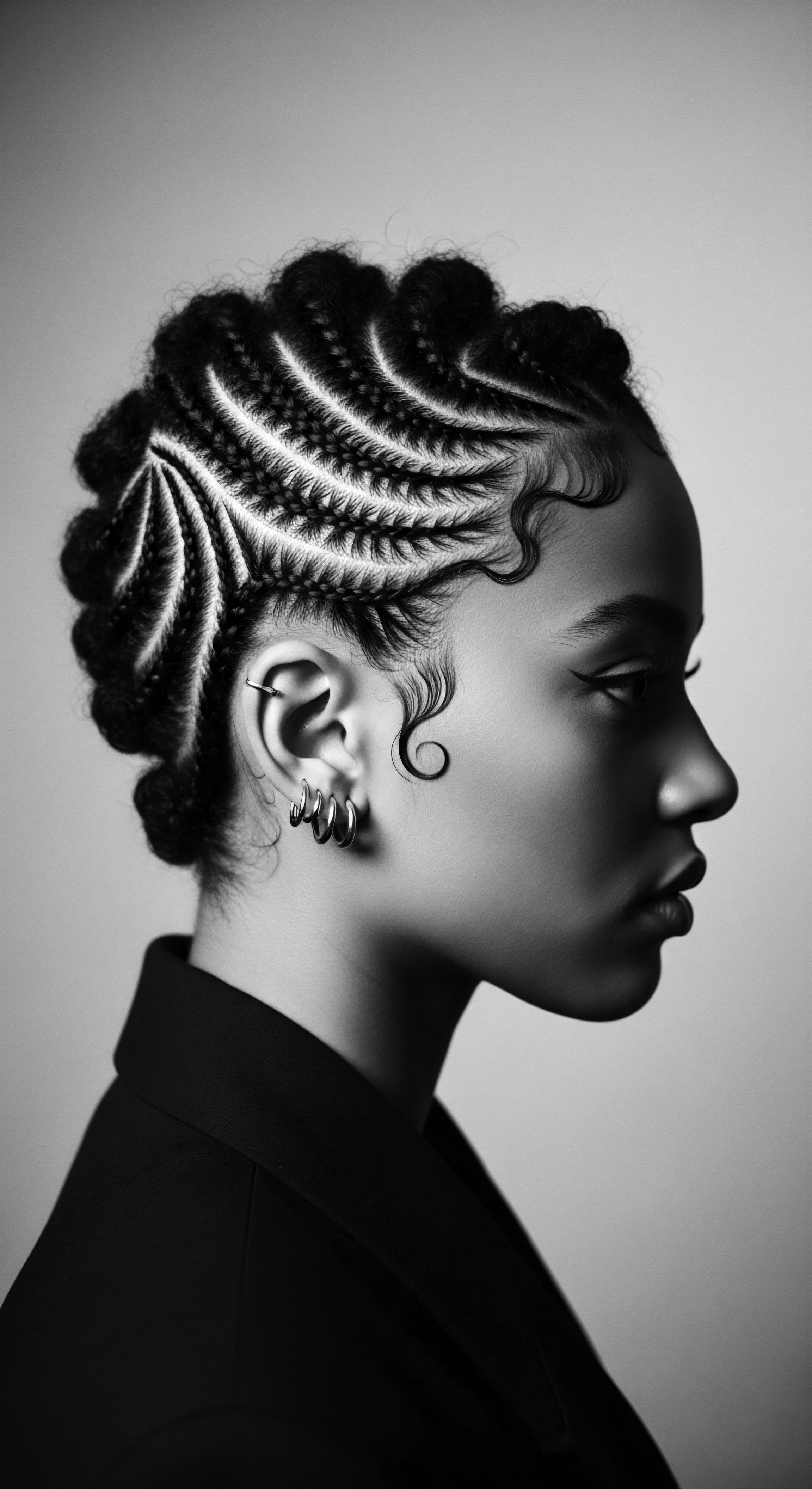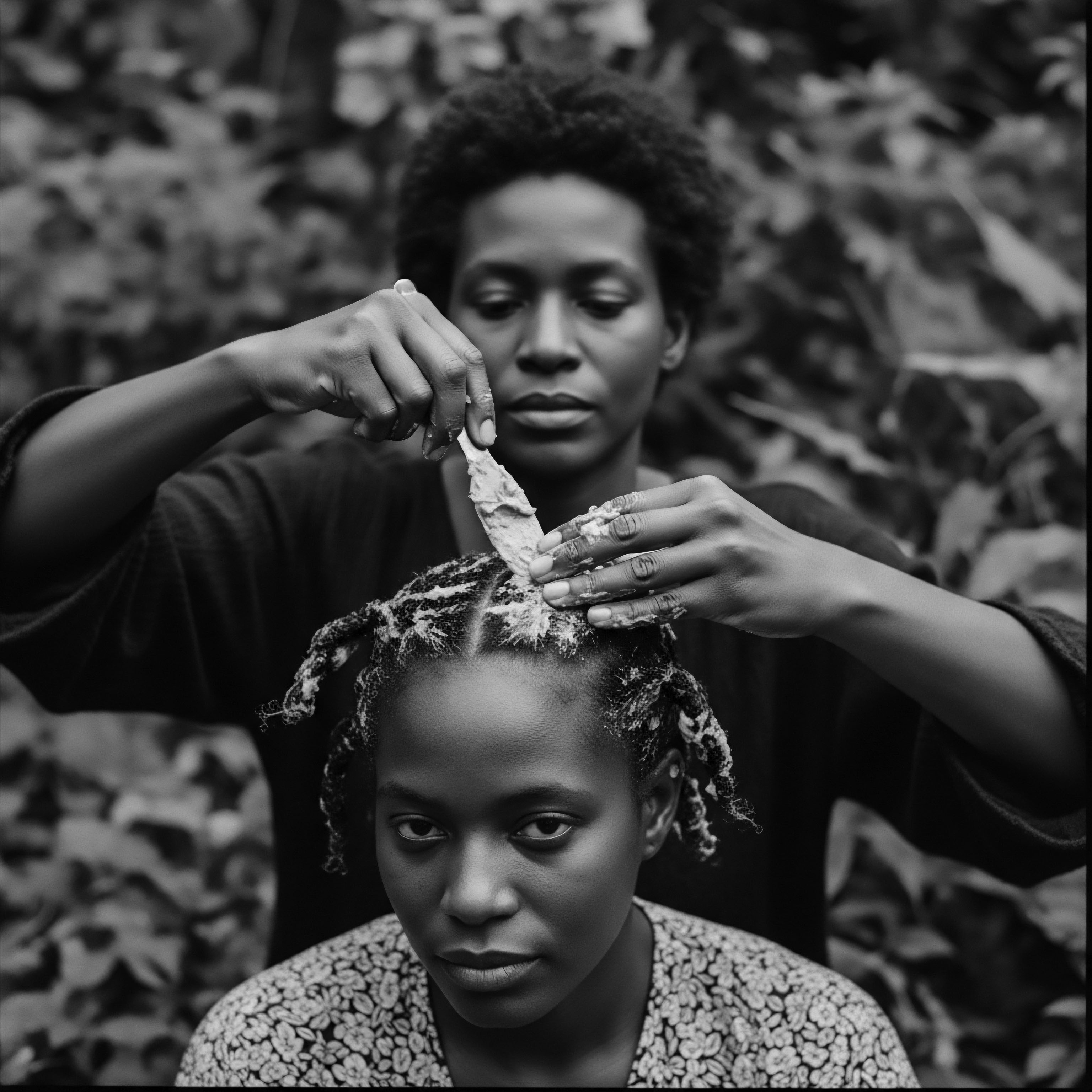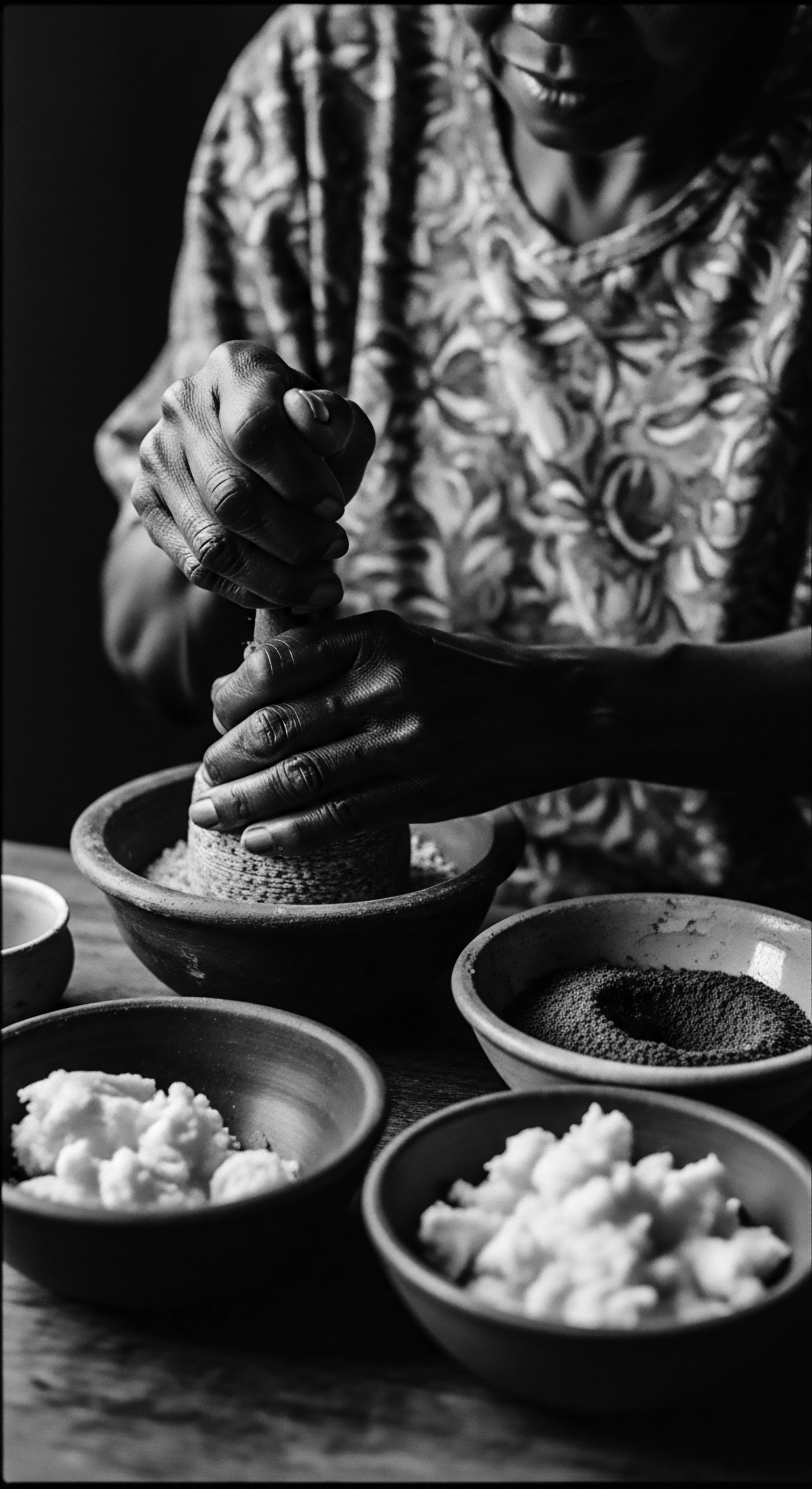
Roots
Consider the texture of a coiled strand of hair, a spiral holding stories within its very shape. For generations, this hair has been a canvas of identity, a marker of lineage, and a testament to resilience within Black and mixed-race communities. The relationship with coiled hair runs deep, often mirroring the historical journey and cultural expression of African peoples. It is a connection rooted in care, in ritual, and in the wisdom passed through hands and whispers, a practice often steeped in the use of gifts from the earth.
Among these ancestral gifts, African black soap emerges as a profound agent in the cleansing of coily hair, a practice resonating with centuries of heritage. This handmade soap, originating from West Africa, particularly within the Yoruba communities of Nigeria, Togo, and Benin, and also found in Ghana, is not merely a cleansing agent; it is a cultural touchstone. Traditional recipes vary, but consistently include a blend of plant-based materials like cocoa pod ash, plantain peel ash, palm kernel oil, and shea butter.
The distinct dark hue comes from the drying and roasting of these plant ingredients. For instance, the renowned Nigerian black soap, Dudu Osun, incorporates shea butter, camwood, lemon juice, and honey, creating a rich lather that honors ancestral wisdom in cleansing and skin nourishment.
The very creation of African black soap is a communal enterprise in many traditional African societies. This process embodies the deep connection to the land and the collective effort inherent in African community life. The women’s cooperatives in northern Ghana, for example, hand-craft black soap using locally sourced shea butter, coconut oil, palm kernel oil, and cocoa pod potash. This intergenerational transmission of knowledge, where recipes are passed from mother to daughter, underscores the soap’s enduring presence in African cultural heritage.
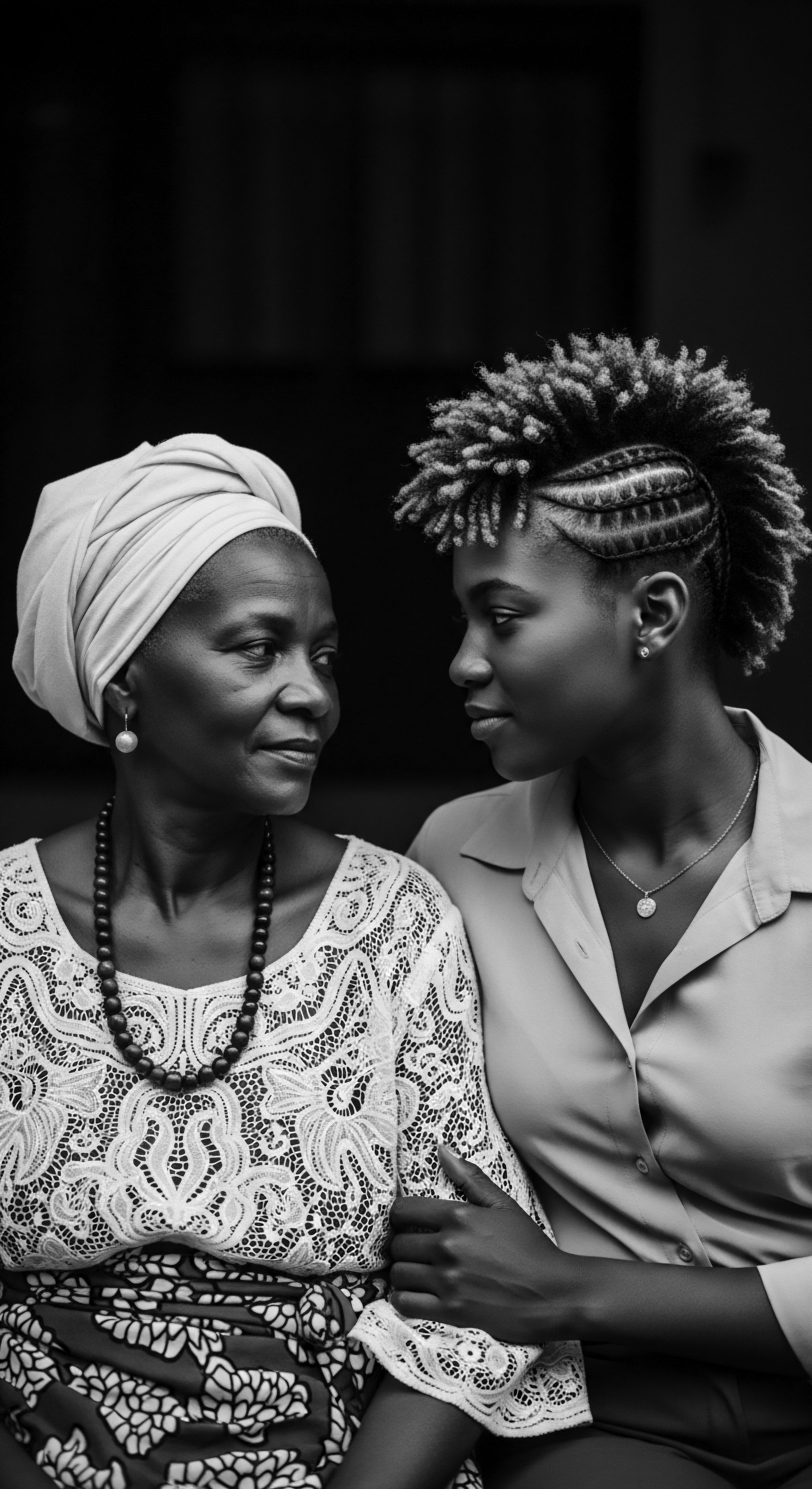
What Components Give African Black Soap Its Cleansing Power?
African black soap’s ability to cleanse derives from the harmonious interaction of its raw plant-based ingredients. The ash from roasted plantain skins, cocoa pods, palm tree leaves, and shea tree bark provides the alkali necessary for saponification, the chemical reaction that transforms oils into soap. Coconut oil provides cleansing and healing properties, while shea butter offers moisturizing benefits. Palm oil, rich in antioxidants and vitamins, also contributes to the soap’s nourishing qualities.
The unique pH of African black soap is also noteworthy. Traditional African black soap often has an alkaline pH, typically ranging between 8.7 and 10.0. This alkalinity allows it to effectively remove excess oil, dirt, and product buildup from the scalp and hair, creating a clean environment for hair follicles.
The deep cleansing properties of the soap are paramount for textured hair, which can accumulate product more readily due to its structure. A clean scalp is foundational for healthy hair growth, as it promotes an optimal environment for follicles.
African black soap, born from West African earth and ancestral hands, offers a heritage-rich cleansing for coiled hair.
Beyond its cleansing abilities, the traditional belief in its spiritual and healing properties further elevates its standing within African cultures. It is a symbol of connection to one’s African roots and a way to honor the traditions of ancestors.
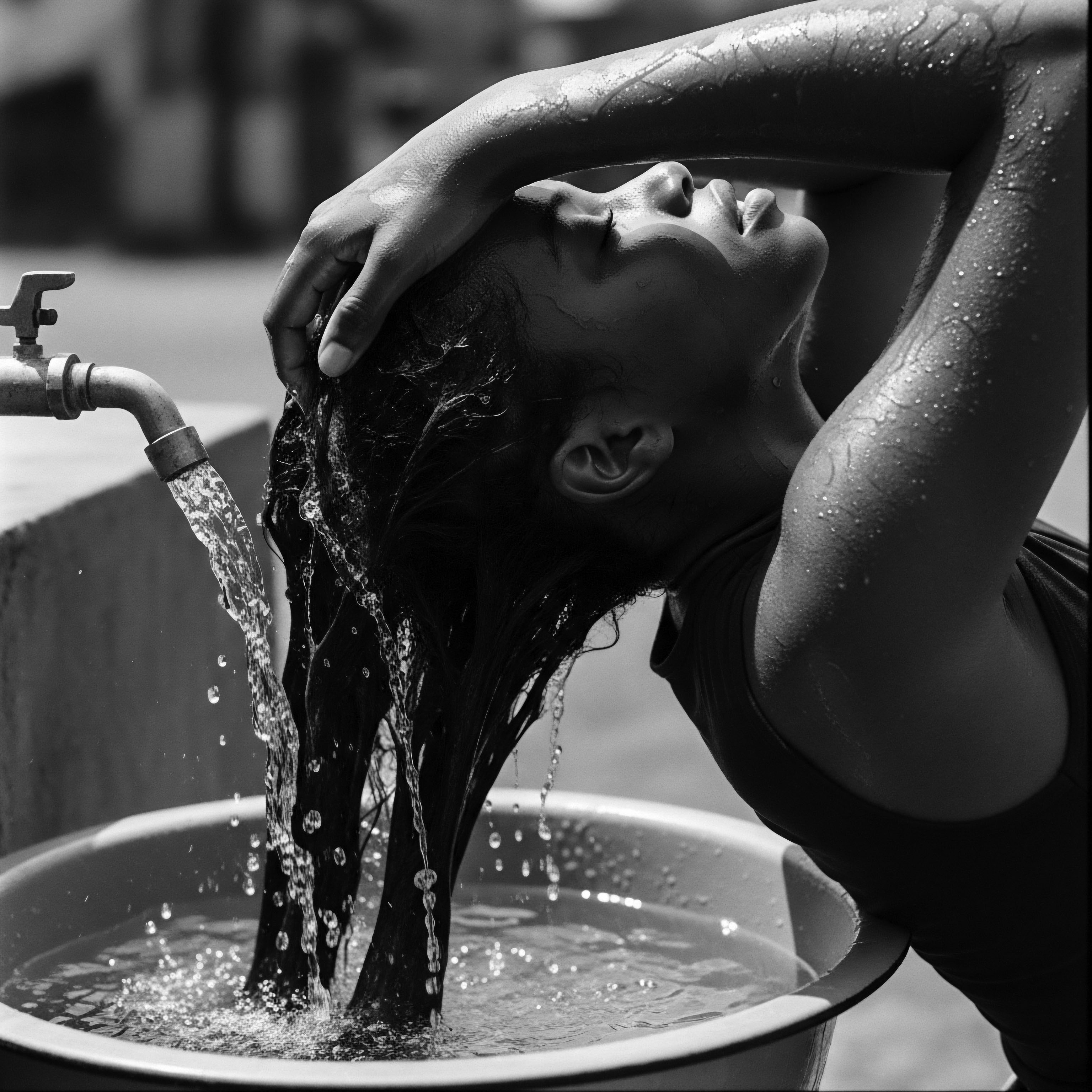
Ritual
For those with coily hair, cleansing has never been a simple chore; it is a ritual, a sacred act of care often steeped in deep historical meaning. The use of African black soap in this ritual speaks to a continuity of practice that transcends generations, linking present-day care to ancestral wisdom. Wash day for individuals of African descent often carries a distinct rhythm, a deliberate process that honors the hair’s unique structure and its place in communal life.
In pre-colonial Africa, hair care rituals were elaborate and time-consuming, serving as important social opportunities for bonding among family and friends. These rituals often involved washing, combing, oiling, and intricate styling. African black soap was widely used in West and Central Africa for shampooing, alongside oils like palm oil and palm kernel oil for scalp oiling, and shea butter for moisturizing.
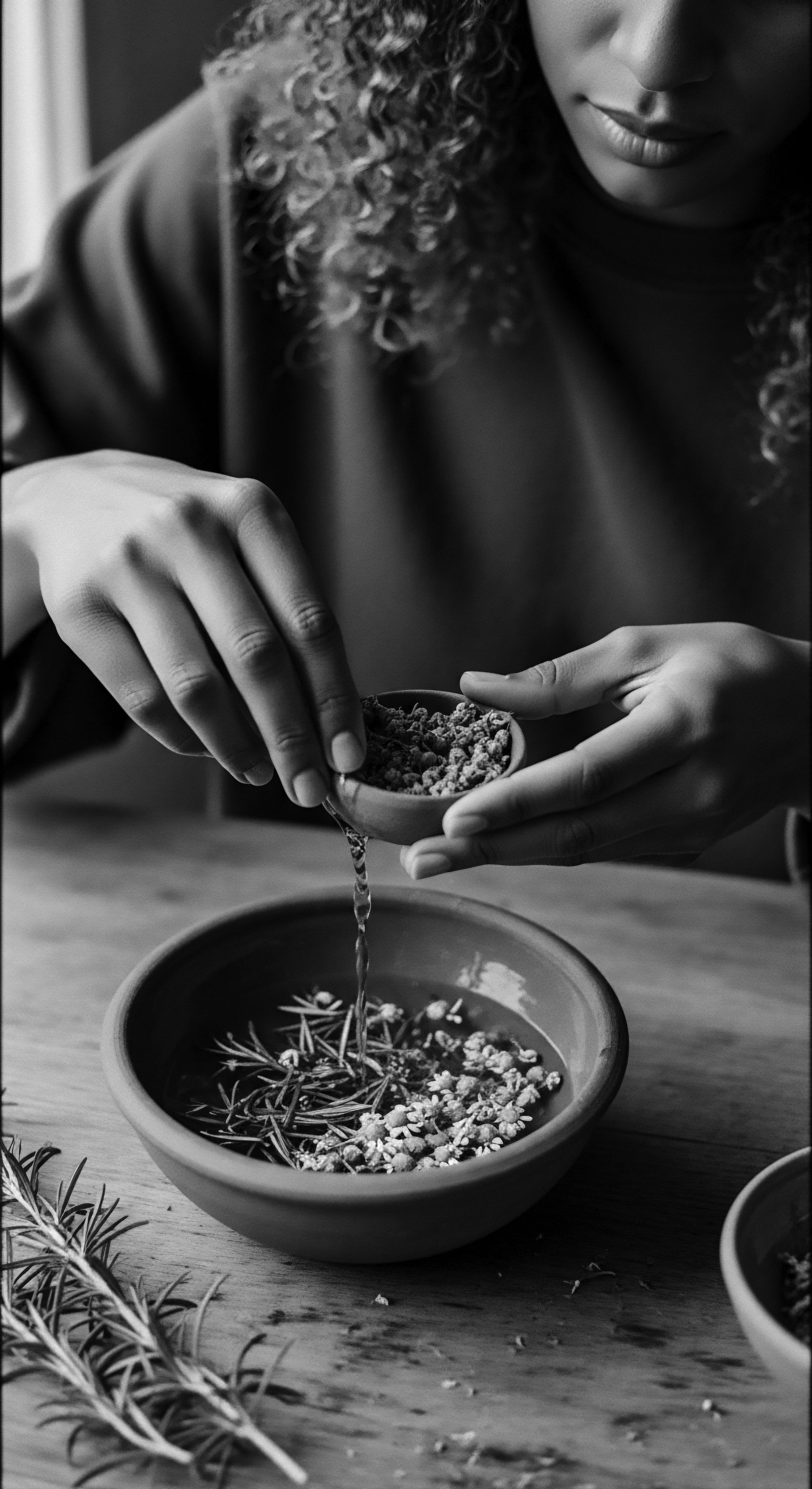
How Does African Black Soap Support Scalp Health?
The efficacy of African black soap extends beyond mere cleansing, reaching into the realm of scalp health. Its natural ingredients, such as shea butter and plantain peel ash, are known to soothe scalp irritation and address issues like dandruff. The presence of vitamins A and E, along with antioxidants and minerals, contributes to nourishing hair follicles, strengthening strands, and potentially reducing breakage.
Some traditional formulations also possess anti-inflammatory properties that may help prevent hair loss caused by scalp inflammation. This comprehensive approach to scalp care aligns with ancestral wellness philosophies that view hair health as an integral part of overall well-being.
The practice of applying African black soap to hair represents a conscious decision to connect with natural, time-honored ingredients. It reflects a sentiment deeply tied to the assurance that products are organic, natural, and free from harsh chemicals. This aligns with a broader emphasis on natural hair care that prioritizes hair health.
The use of African black soap in hair care is a ritualistic link to ancestral practices, honoring the hair’s inherent qualities and scalp’s vitality.
However, it is important to acknowledge the inherent alkalinity of traditional black soap. While beneficial for deep cleansing, its pH can be higher than the optimal slightly acidic pH of the scalp (4.5-5.5). This can potentially lead to dryness or disrupt the scalp’s natural acid mantle if not managed properly.
As Zenda Walker notes in her reflections on traditional wash days, the process for textured hair often involved a meticulous sequence of shampooing, rinsing, detangling, and then applying a variety of oils and leave-in conditioners to maintain moisture. Modern applications of black soap for coily hair frequently involve following up with an acid-balanced conditioner to help seal raised cuticles and lock in softness.
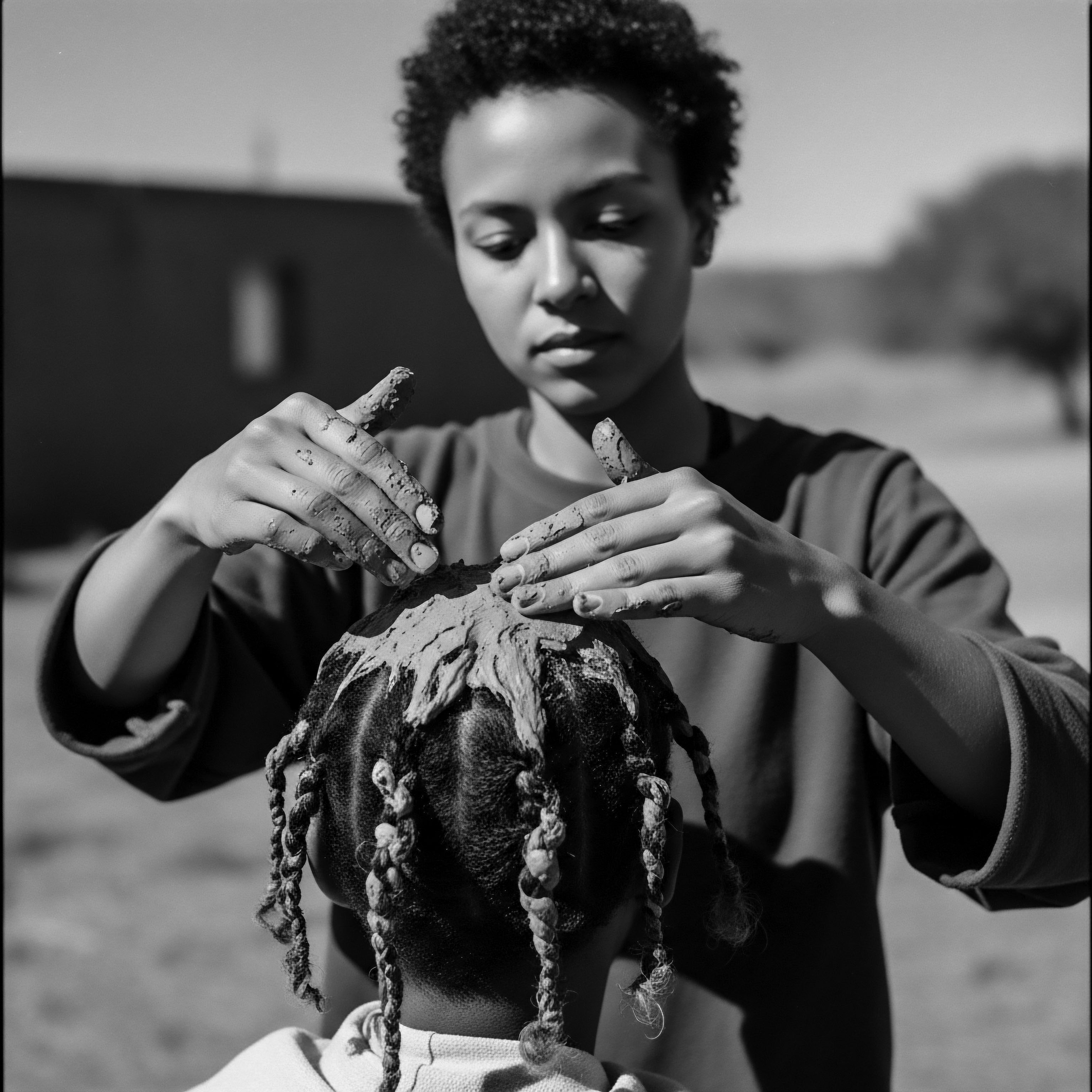
What Is the Role of Coily Hair in West African Heritage?
The hair itself, especially coily hair, holds significant meaning within West African societies. It was not merely an aesthetic expression but a profound symbol. Hairstyles conveyed identity, social status, age, marital status, tribal affiliation, and spiritual beliefs.
For example, in Yoruba culture, hairstyles carried deep spiritual significance, and skilled braiders held respected positions in society. The care of hair, including washing with preparations like black soap, was interwoven with these social and spiritual expressions.
The forced shaving of hair during the transatlantic slave trade was a brutal act of dehumanization, intended to strip enslaved Africans of their identity and cultural pride. Despite this, African Americans found ways to express individuality through their hair, even with limited resources. The enduring tradition of communal hair care, particularly on Sundays, became a powerful act of resistance and connection to heritage, as documented in narratives like “Aunt Tildy” Collins’ account of her mother and grandmother preparing her hair. This historical context deeply informs the reverence and intentionality behind cleansing coily hair today.
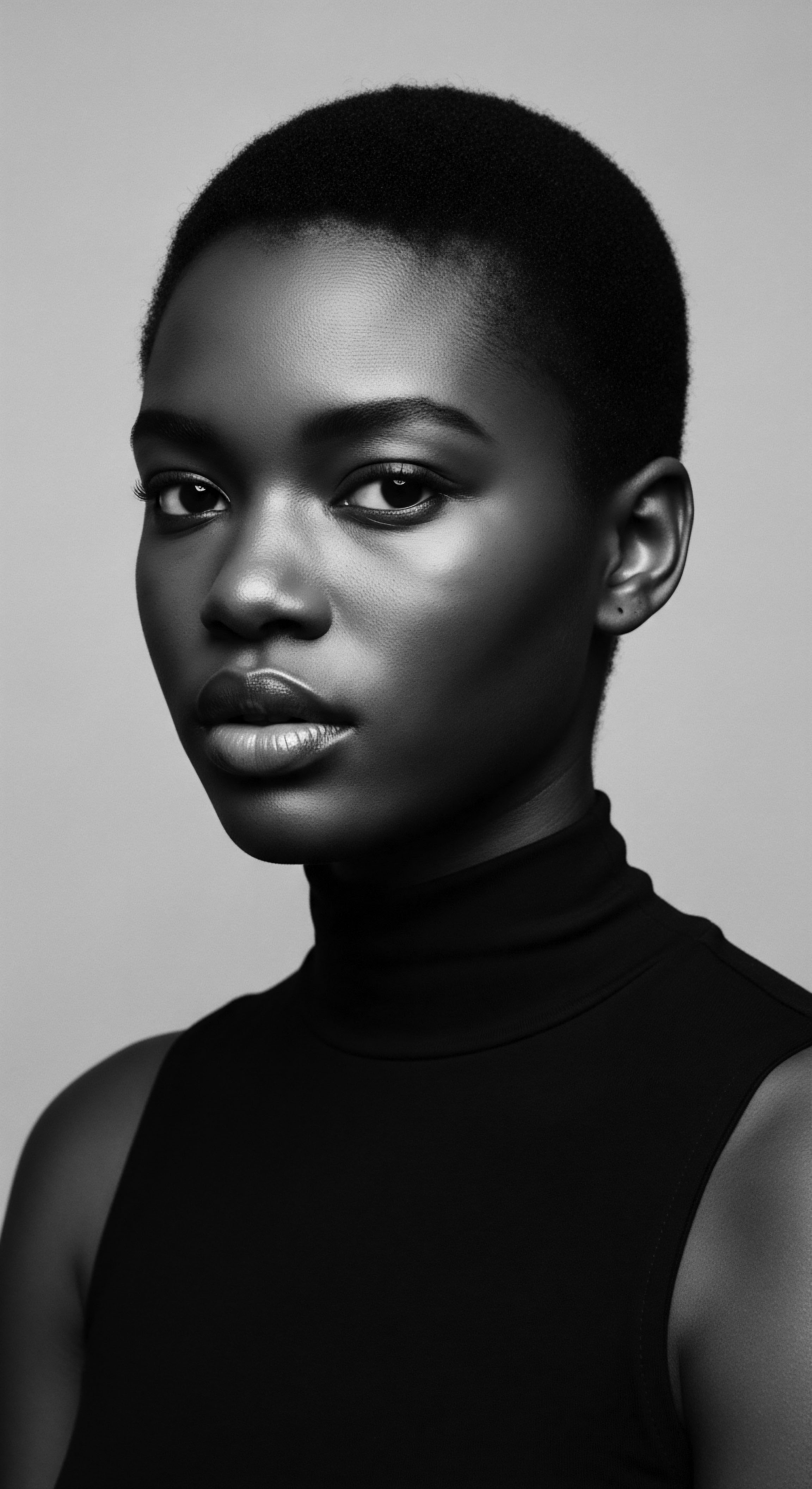
Relay
The legacy of African black soap, particularly its heritage in cleansing coily hair, serves as a powerful relay of ancestral wisdom into contemporary hair care. This continuity bridges the elemental biology of textured hair with the sophisticated understanding of modern trichology, all while remaining tethered to the cultural practices that birthed this natural wonder. The journey of this soap from traditional hearths to global recognition underscores the enduring value of indigenous African knowledge systems.
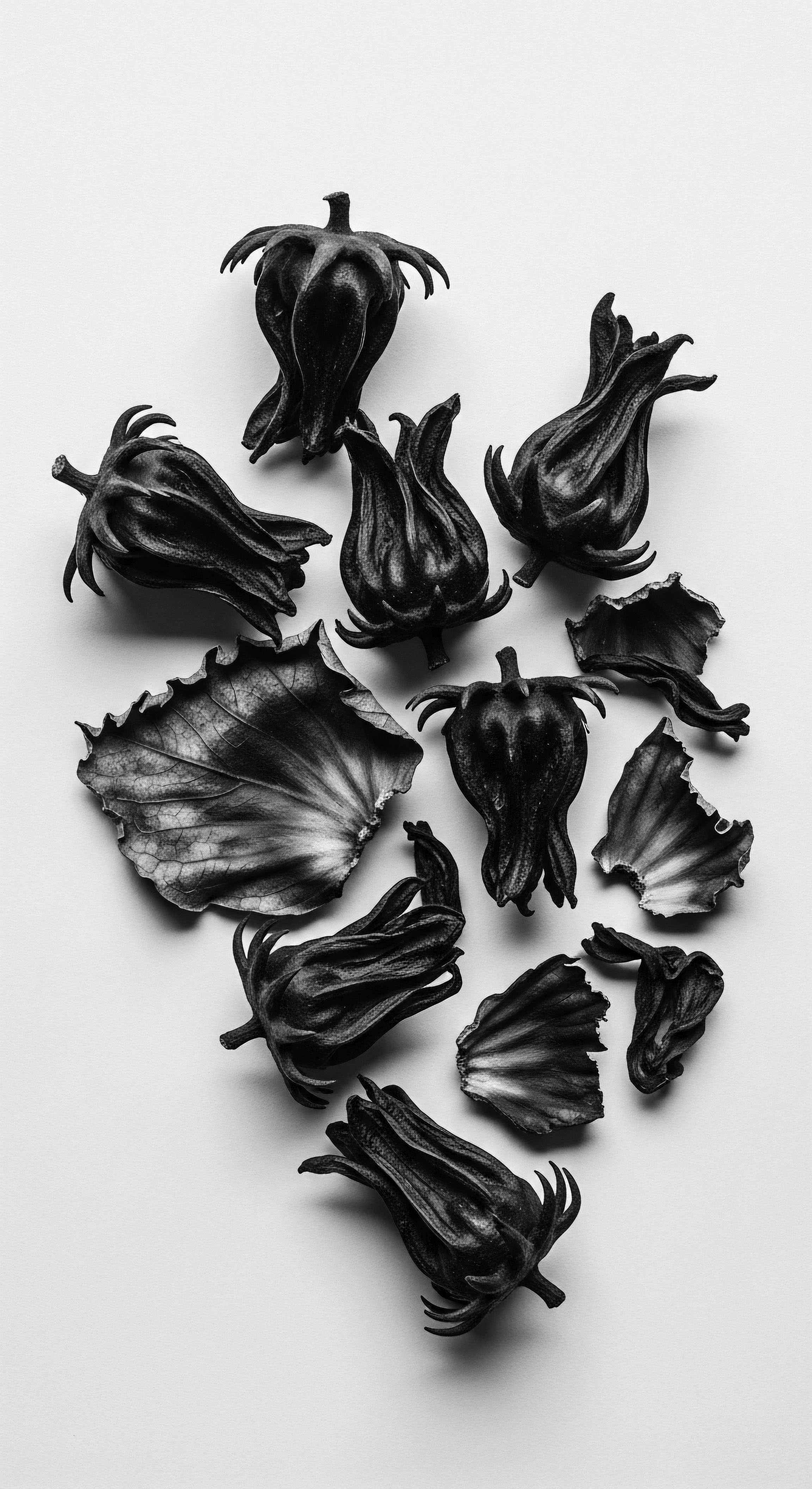
How Does Modern Science Validate Ancestral Practices with African Black Soap?
Contemporary hair science offers a lens through which to understand the efficacy of African black soap, often validating what ancestral wisdom intuitively understood. The saponification process, central to black soap’s creation, transforms plant ashes and oils into a potent cleansing agent. Studies on African black soap highlight its phytochemical properties, revealing compounds that are nourishing to the skin and, by extension, the scalp. This provides a scientific underpinning for the deep cleansing and nourishing qualities that have been observed for centuries.
For coily hair, deep cleansing is paramount. The unique structure of coiled strands, with their numerous bends and curves, can trap product buildup, environmental pollutants, and excess sebum. African black soap’s ability to effectively remove these accumulations is crucial for maintaining a healthy scalp microbiome.
A balanced scalp microbiome, a thriving ecosystem of microorganisms, is essential for optimal hair growth and comfort. African black soap, with its natural saponins and antioxidants, gently cleanses while aiming to protect beneficial bacteria on the scalp.
African black soap’s journey from ancient tradition to modern relevance highlights how ancestral wisdom often aligns with contemporary scientific understanding.
However, scientific understanding also offers important considerations. The alkaline pH of traditional black soap (typically 9-10) can, for some, disrupt the scalp’s natural acid mantle (optimal pH 4.5-5.5), potentially leading to dryness or irritation. This chemical reality is why modern formulations of black soap shampoos often aim to balance the pH, or why following a black soap cleanse with an acid-balanced conditioner is so often recommended for coily hair. This demonstrates how modern scientific inquiry can refine and enhance ancestral practices, ensuring their continued effectiveness in a contemporary context.
A case study in this area is the traditional Nigerian black soap, Ọsẹ Dúdú. This indigenous soap has been extensively used for its cleansing and medicinal properties. Research indicates that Ọsẹ Dúdú contains secondary metabolites beneficial for the skin and scalp, justifying its deep cleansing and nourishing effects. (Ikotun et al.
2017a). This research, while focusing on skin benefits, supports the traditional understanding of the soap’s efficacy for overall bodily cleansing, including hair. This academic exploration of Ọsẹ Dúdú further validates the centuries-old practices of Yoruba communities.

What Are the Historical Adaptations of African Black Soap Usage?
The adaptation of African black soap’s use in hair cleansing across various regions and through history provides insight into the ingenuity and resilience of textured hair heritage. The recipes, while sharing a common core of plant-based ingredients, exhibit regional variations depending on locally available resources. This adaptability has allowed the soap to persist as a staple across diverse African communities and among the diaspora. There are over 100 types of African black soap, reflecting this regional and traditional variation.
- West African Variations ❉ Traditional West African black soaps, often known as Ose Dudu in Nigeria or Alata Samina in Ghana, are primarily made from plantain skins, cocoa pods, palm tree leaves, and shea butter. These variations are known for their deep cleansing properties.
- North African Influence ❉ While distinct, Moroccan black soap, or Beldi, shares a lineage of natural soap-making, typically using olive oil and potash. Its use in hammam rituals for skin purification also highlights a shared cultural emphasis on natural cleansing traditions across the continent.
- Diasporic Innovations ❉ In the diaspora, especially among African Americans, the historical necessity born of limited access to traditional African hair care essentials during slavery led to creative adaptations. While not directly involving black soap, this period saw the use of alternative, often less effective, ingredients like kerosene or even bacon grease for hair care. The modern resurgence of natural hair movements has, in turn, fueled a renewed interest in traditional African ingredients like black soap, leading to its incorporation into new product formulations that bridge traditional knowledge with modern needs.
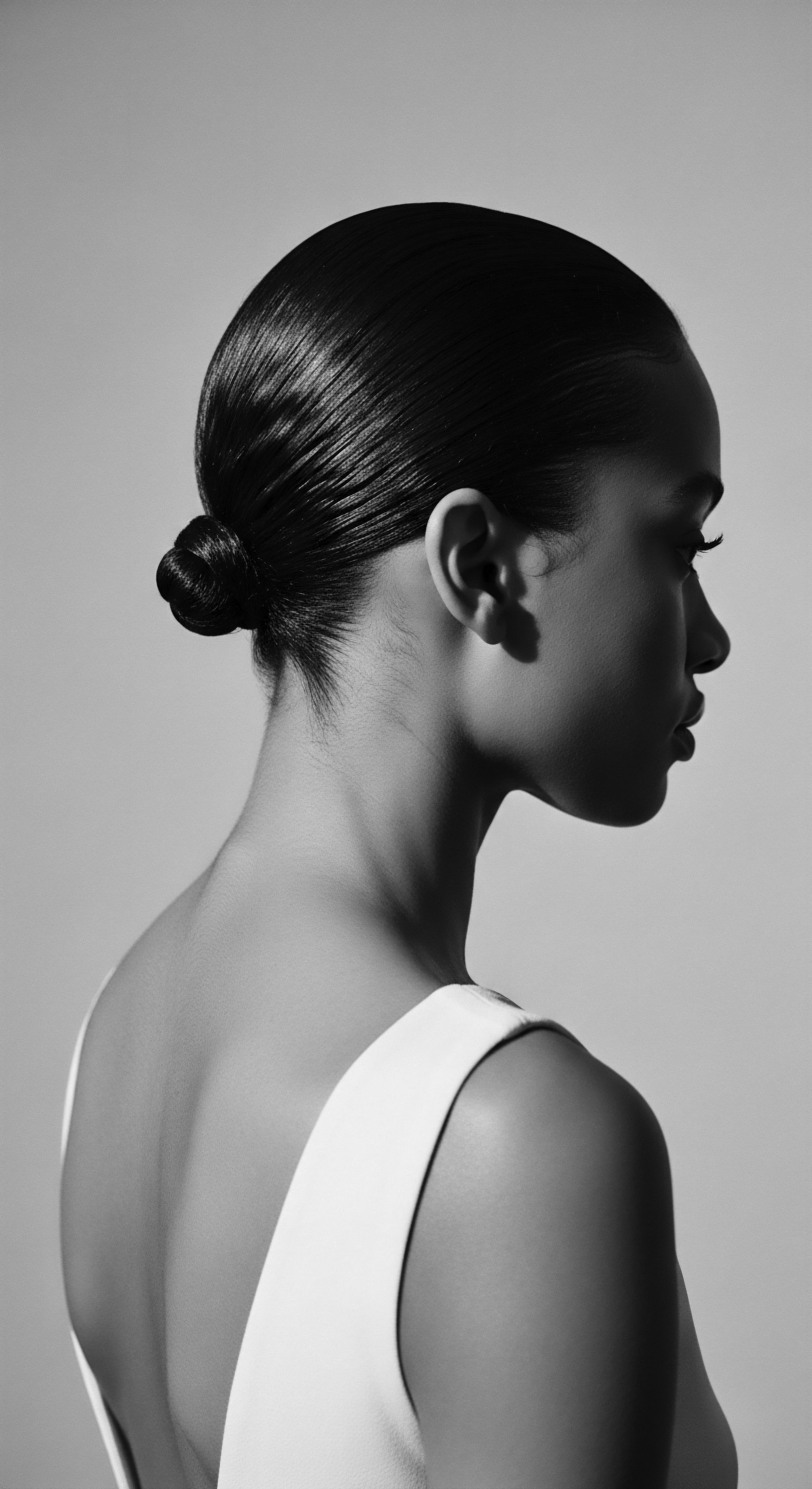
Reflection
The narrative of African black soap in cleansing coily hair is more than a discussion of ingredients or chemical reactions; it is a profound meditation on textured hair heritage itself. It speaks to the deep connection between people, their land, and the enduring wisdom passed down through generations. This is a story woven with threads of resilience, identity, and the timeless pursuit of holistic well-being. Each application of this dark, earthy soap is a conscious act, a momentary return to the source, acknowledging the legacy held within each strand.
As we consider the modern landscape of hair care, the presence of African black soap stands as a beacon, reminding us that the answers to many contemporary challenges often reside in the echoes of ancient practices. It encourages a deeper appreciation for the ingenuity of historical hair care, the steadfastness of traditions, and the luminous nature of textured hair heritage. The journey of African black soap, from communal creation to a globally recognized cleanser, embodies Roothea’s vision: a living, breathing archive of textured hair, its profound heritage, and its mindful care. It is a testament to the power of tradition to not only cleanse, but to connect, to affirm, and to continually inspire.

References
- Byrd, A. & Tharps, L. (2001). Hair Story: Untangling the Roots of Black Hair in America. St. Martin’s Press.
- Ikotun, A. A. Awosika, O. O. & Oladipupo, M. A. (2017a). The African Black soap from Elaeis guinensis (Palm Kernel Oil) and Theobroma cacao (Cocoa) and its transition metal complexes. African Journal of Biotechnology, 16(18), 1042-1047.
- Ikotun, A. A. Olalere, C. A. Adekunle, D. O. & Dawodu, M. O. (2017b). Phytochemistry and Antimicrobial Studies of African Black Soap and its Modified Samples. Journal of Chemical and Pharmaceutical Research, 9(5), 354-359.
- Oluyole, O. S. & Adeogun, S. O. (2005). Socio-economic and health benefits of African black soap (Ose Dudu) production in rural areas of Oyo State, Nigeria. African Journal of General Agriculture, 1(1).
- Tarun, J. Susan, J. Suria, J. Susan, V. J. & Criton, S. (2014). Evaluation of pH of Bathing Soaps and Shampoos for Skin and Hair Care. Indian Journal of Dermatology, 59(4), 416.
- Ukwendu, J. (2019). Ose Dudu: Exploring the Benefits of Yoruba Indigenous Black Soap in Southwest, Nigeria. International Indigenous Policy Journal, 11(1).

